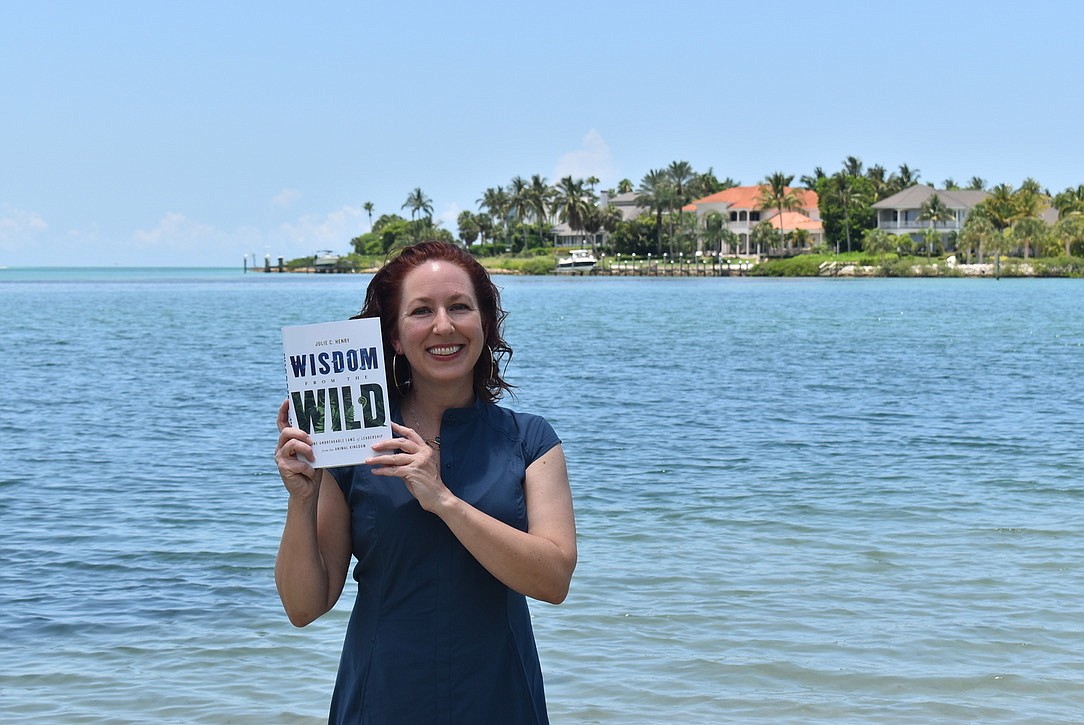- April 26, 2024
-
-
Loading

Loading

What can a sea cucumber teach people about leadership?
Julie C. Henry says you’d be surprised. The slimy sea cucumber has a chapter dedicated to its resilience in Henry’s book, “Wisdom from the Wild.”
When approached by a predator, a sea cucumber will eviscerate itself. The predator will either go away or eat what’s been expelled.
Either way, the sea cucumber survives.
“At that point, the sea cucumber, which is related to a sea star, can regrow its own guts, which is hugely inspirational and comforting to me because as leaders, especially leading change and especially everything we’ve dealt with in the last two years, you feel quite scared and like you’re going to throw up,” Henry said. “To me, the lesson in nature is you’re not just built to survive but to thrive, and so it’s dialing back into your gut memory.”
The sea cucumber analogy highlights unlikely leadership traits but is also meant to catch attention.
Henry was working in Alabama with clients in a manufacturing plant. She said, “If I tell them a story about a sea cucumber, they’re suddenly paying attention, even though they’ve been working 12-hour shifts out on the production floor.”
After 11 years of working at zoos and aquariums, Henry had unknowingly compiled chapters for her book. She was using the same lessons when working with corporate clients, so in 2008 she launched her own consulting business, Finish Line Leadership. Henry travels the country and is on the road one to two weeks a month, but Sarasota is her home base.
Longboat Key is not only close to Henry’s heart because of her connection to Mote Marine Laboratory and Aquarium; her family used to spend spring breaks at the Casa Del Mar Beach Resort.
She still remembers the family tennis lessons and filling a bucket with coquinas, water and sand. She hauled the bucket back to their condo and put it in the refrigerator.
Henry acknowledges that was a terrible idea, but she didn’t grow up near the beach. Growing up along the Great Lakes in Chicago, then Cleveland, she could only dream of waterfronts that weren’t hazardous to her health.
“When I moved to Cleveland in ’84, the lake was declared dead, and the river caught on fire. There were syringes washing up on shore, and that anchored my environmental soul,” Henry said. “And then coming down here to Longboat and to Casa Del Mar and just realizing, OK, here’s the other side of things.”
Henry was studying the works of Mote Founder Eugenie Clark at the Miami (Ohio) University when her parents moved to Sarasota.
Her mom was at Mote and asked how her daughter could get an internship; Henry was a Mote intern in 1994 and 1995. In 1999, she moved to Sarasota and worked in Mote’s education department until 2005.
A dream come true, Henry gave presentations alongside Eugenie Clark and did yoga with her in the conference room after work.
“She was a larger-than-life personality but the most real scientist I’ve ever known,” she said.
There’s a nod to Clark in the book: “I moved to Florida in awe of working at the organization founded by such a legendary scientist and surrounded by ongoing, groundbreaking research.”
That’s the only time Henry names a scientist or organization in the book, but locals might recognize the touch tank in Chapter 8. Henry worked at Mote when it was being designed. They wanted a tank as easily accessible to a visitor in a wheelchair as it would be to one standing. The solution was to shape one portion as an hourglass. Wheelchairs can roll underneath like a tabletop, and everyone enjoys the same touch tank experience.
Henry is the type of person who champions the underdog, whether it’s a sea cucumber or a human being.
“I have a heart for people who don’t exhibit stereotypical leadership qualities,” she said. “Maybe they’re not the loudest person in the room or the most gutsy or the person who’s going to step up first, but it doesn’t mean they’re not a leader.”
“Wisdom from the Wild” was published in January and is available online at Amazon or locally at the Mote gift shop, Barnes & Noble, Elysian Fields and Environeers.